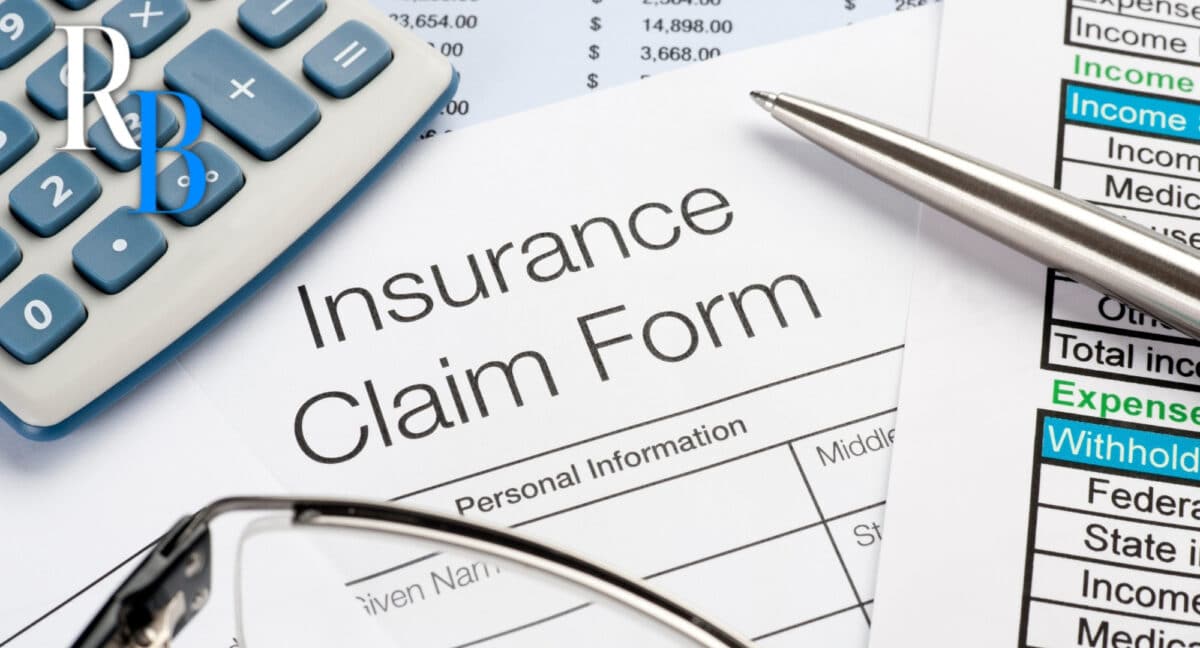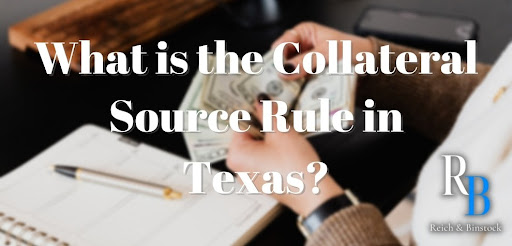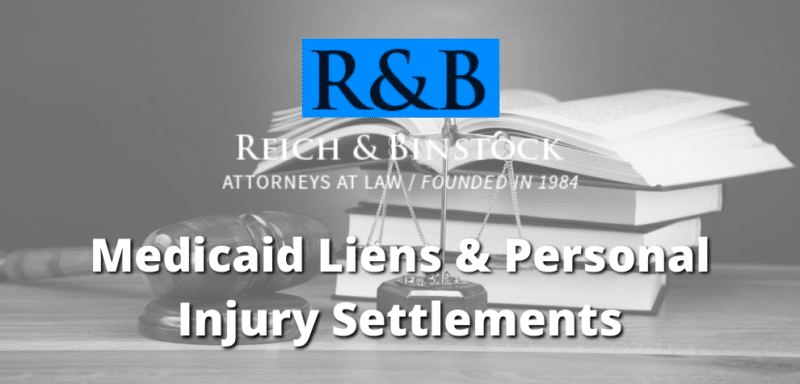HOUSTON INSURANCE BAD FAITH LAWYER
Houston Insurance Bad Faith Attorney

When you suffer property damage, whether through a car accident, hurricane damage, fire damage, or what have you, you depend on your insurance company to do their part and pay a fair and reasonable claim. However, this doesn’t always happen. Insurance bad faith is a more common problem than you may think. If this happens to you, you need an insurance bad faith attorney on your side.
Unfortunately, your insurance company is not on your side. It has an interest in protecting its bottom line and paying as little as possible. This can result in your claim being denied, undervalued, or a delay in payments.
If you find yourself in need of a Houston insurance bad faith lawyer, contact Reich and Binstock for a free consultation. Call our Houston law office today at 713-622-7271 to schedule.
What is Bad Faith?
Bad faith insurance is when a policyholder is treated unfairly. This can come in many forms, including wrongful denial of an insurance claim, delayed payments, settlement of a claim for less than it is worth, and not paying a judgment to the claimant.
The Houston attorneys at Reich & Binstock will protect your rights. We know what action to take after your insurance claim has been wrongfully denied. As skilled litigators, we know how to effectively represent individuals who have been victims of insurance bad faith.
What Constitutes Bad Faith?
Dealing with insurance companies can be difficult, even when they are acting in good faith and reasonably examining your insurance claim. It can be difficult to follow negotiations and understand how the insurance adjuster operates.
For many insurance claim cases, a fine line may exist between good and bad faith.
State laws vary, and individual insurance companies may implement individual regulations to deter bad faith operations.
Examples of Bad Faith Tactics
You may have a general idea of what bad faith means, but the term has a technical meaning under the law. In the context of dealing with your own insurance, bad faith refers to when the insurance refuses to pay a claim without a reasonable basis or fails to properly investigate a claim in a timely manner. There are many different types of conduct that can constitute bad faith.
Below is just a brief list:
- Deceptive practices or deliberate misrepresentations to avoid paying claims
- Deliberate misinterpretation of records or policy language to avoid coverage
- Unreasonable litigation conduct
- Unreasonable delay in resolving a claim or failure to investigate
- Use of improper standards to deny a claim
- Arbitrary or unreasonable demands for proof of loss
- Abusive or coercive tactics to settle a claim
- Compelling an insured person to contribute to the settlement
- Failing to disclose policy limits and policy exclusions
Even if an adjuster acts in one of these ways, he or she may still have not been acting in bad faith. You’ll want to consult with an experienced insurance lawyer if you feel as if your insurance claim was unfairly denied or if your insurance adjuster acted in bad faith.
What to Do if an Insurance Company Will Not Pay a Claim?
If you’re involved in a personal injury case or a tort case in which you file an insurance claim with your provider, you may encounter a bad faith insurance claim. Whether an accident was your fault or someone else’s, you can still have a valid claim. If the insurance company fails to act in good faith and pay the claim, you may have the basis for a bad faith insurance lawsuit. But what should you do now? We outline the steps you should take below.
Ask the Company Why They Denied Your Claim
While many insurance companies are happy to engage in fair dealing with their policyholders, others are more concerned about saving money, which leads them to deny claims. If you have provided all evidence from the accident, proving that the other driver is at fault may not be enough to convince the insurance company to pay. It is perfectly reasonable in this case to ask how insurance companies view the accident.
Use Your Insurance Policies Wisely
If you file a claim with the other driver’s insurer and they refuse to cooperate, you can try to settle claims with your own company. As long as the claim falls under your insurance coverage, your company should pay. Then, they will begin the subrogation process in order to collect a payout from the other driver’s insurer.
Mediation
If communication breaks down and your insurance carrier refuses to pay, you may need to try mediation. With the help of an insurance attorney, you can sit down for a mediation process with a neutral third party. That third party will then hear both sides and come to a decision.
File a Bad Faith Insurance Claim
Sometimes, insurance companies are so stubborn that nothing will persuade them to do the right thing, except the word “lawsuit.” You and your attorney should work together to receive payment for your valid claims. Otherwise, your provider might open themselves up to bad faith lawsuits.
What Is a Bad Faith Insurance Claim?
People pay insurance companies for insurance policies for many reasons. One of those reasons is to have peace of mind that they won’t be saddled with thousands of dollars to pay after an accident. After all, very few people can afford sudden, expensive payments.
Because you pay your insurance companies for their services, you expect them to give you a reasonable settlement offer after an accident. However, sometimes even a reasonably clear claim gets denied by insurance companies. Bad faith insurance practices encompass a number of unsavory actions from companies. Essentially, insurance companies act in bad faith when they fail to follow good faith practices. These practices are as follows.
- Conducting proper investigations of claims and giving those results to the policyholder
- Paying settlements or judgments to policyholders up to their policy limits
- Defending policyholders against claims against them, except when claims include the cost of defense
- Settling legitimate claims reasonably
How to Sue an Insurance Company for Bad Faith
By law, a company is obligated to serve you in good faith when you file an insurance claim with them. Essentially, an insurance company cannot attempt to seek a way to get out of paying the claim or fulfilling its obligation to investigate your claim. If the insurance company chooses to escape its duty, this often constitutes a breach of contract. Bad faith lawsuits could stem from numerous actions or inactions by the insurance company.
However, you must try to explore alternative options when your insurance company rejects your petition for policy benefits. Initially, we recommend asking the insurance company supervisor to review and investigate your petition.
If contacting the supervisor doesn’t help, you can opt for a bad faith insurance attorney.
Keep Track of Conversations
Record the details of your conversations with your insurance company. These notes should include the name of the person, the date and time in which you spoke with them, what you discussed, and how the conversation ended. If your insurance company requested that you provide additional information or documents, mentioned a settlement, etc. you should also include that in your notes.
Petition for Bad Faith
Your bad faith insurance attorney will review your notes regarding the bad faith insurance claims of your policy. Then, your insurance bad faith attorney will write a letter to the personnel at the insurance company explaining your claim. This letter will set the applicable specifications of your insurance policy, what your current situation is, and why you are eligible for the requested amount. This letter alone may be enough to force your insurance company to take a second look at your case and make the requested payment.
The bad faith petition is likely to include:
- Petitions for the convention of policy, negligence, bad faith, and fraudulent behavior
- Unfair practices of settlement
- Petition for violation of decree
- Petition for damages due to bad faith
- All payments under the policy
Request for Claim File
Your insurance bad faith attorney can request that your insurer produce relevant documents, namely the claim file. The claim file will include the claim adjuster’s notes about your specific petition. Your insurance lawyer can also request that your insurance company answer a few written questions, as well. The supervisor, claim adjuster and any other representative can be deposed by your attorney.
Your claim file may be enough evidence to prove that the insurance company was neglecting your petition or handling it in a fraudulent manner. Furthermore, your insurance bad faith attorney can request the insurer’s claim manual, which will trigger the processing of the claim. The claim manual can be evidence that establishes the insurer’s bad faith and prove that the insurance company was not following the lawful processes with respect to your specific insurance claim.
Suing for Bad Faith
Commencing a lawsuit can result in the settlement of your petition even before a trial. Typically, both parties will continue to negotiate throughout the procedure of the bad faith insurance lawsuit at hand. If the case proceeds to trial, your insurance bad faith claims attorney will submit evidence and arguments and subpoena witnesses to the court for a judge to make a final ruling on your case.
Damages in Bad Faith Claims
It’s important to understand the damages that you can request in a bad faith case. Generally, there are three types of damages in these cases: contract, extracontractual, and punitive damages.
Contract damages include the amount your denied claim was worth plus a certain amount of interest. Extracontractual damages cover attorneys fees, emotional distress, and any economic losses you suffered from the denied claim.
Punitive damages aim to punish companies who exhibit “malicious, fraudulent, or oppressive” behavior. Generally, there is a very high standard of proof in these cases. You and your attorney must work to show “clear and convincing evidence” of your insurer’s misconduct to have a shot at being awarded these damages.
Lastly, you can recover attorney’s fees. However, this is only possible if you can prove insurance company bad faith. The fees you can recover are those that you spent trying to establish bad faith in your personal injury or tort claim.
Types Of Bad Faith Insurance Claims
We have experience representing plaintiffs in Houston and throughout Texas in bad faith insurance claims against insurance companies of all sizes, including large insurance companies in the United States. Examples of possible bad faith insurance cases include the following:
- Hurricane insurance claims
- Hailstorm damage claims
- House fire insurance claim
- Wildfire damage claims
- Flood insurance claims
- Wind damage claims
Do not let the insurance company take advantage of you. Our law firm will stand up for you and protect your right to receive fair coverage and treatment.
Contact Us to File a Bad Faith Insurance Claim
Insurance issues can be confusing and frustrating, especially when you may be dealing with bad faith issues that require legal action. If you’re unsure how to move forward or if you feel like your insurance company acted in bad faith, give us a call.
With nearly 30 years of experience litigating on behalf of clients who battle insurance companies, our Houston attorneys will not hesitate to file an insurance bad faith lawsuit, if necessary, in pursuit of the claim that you deserve. There is no need to be cheated out of a just claim because of deceptive tricks of the insurance trade. Our specialized experience and expertise will start working for you as soon as possible at no charge. For a free consultation, call us at 713-622-7271 or complete our confidential online form for a free case evaluation.
There is never a fee unless we recover on your behalf.
Additionally, clients are not obligated to pay expenses if a recovery is not made.




















